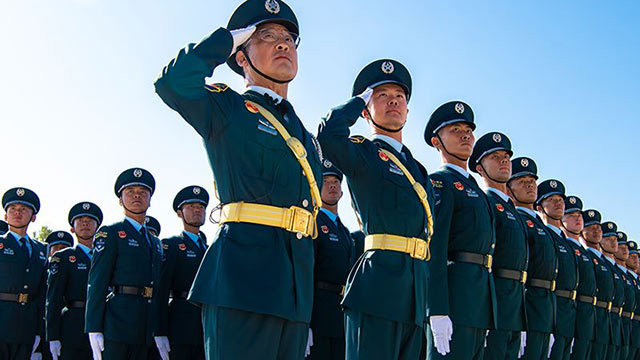By Yan Yu
The Japan-US summit will be held in Washington DC in mid-January. This will be the first meeting between Japanese Prime Minister Fumio Kishida and US President Joe Biden at the White House since the former took the office. Japanese media expects that Fumio Kishida will explain to the US the revision of three security documents including the National Security Strategy (NSS), National Defense Strategy (NDS) and Defense Buildup Program (DBP) and the substantial increase in defense spending, with a view to further deepening the Japan-US alliance. The purpose of this move is self-evident: Japan aims to tie itself closer to the US chariot and pave the way for reviving its dream of becoming a major military power.
In December 2022, the Japanese government passed three security documents including the new NSS, and clearly stated that it will build a "counterstrike capability (capability to attack enemy bases)" and deploy the US-made Tomahawk long-range cruise missiles in 2026. At the same time, these documents propose to increase the total defense expenditure for five years from 2023 by about 43 trillion yen, which is 1.6 times the total defense expenditure for the current five years (2019 to 2023). Japan also plans to increase the ratio of defense spending and related budgets to Japan's gross domestic product (GDP) from about one percent to about two percent by 2027.
According to the revised documents, Japan will abandon the self-defense-only postwar principle and will break through many post-war restrictions. For instance, it may further relax the Three Principles on Transfer of Defense Equipment and Technology, expand arms exports, and deepen military-civilian integration. This immediately aroused the international community's concern about Japan repeating its mistakes and following the path of military power. As the Japanese anti-war peace organization Peace Vision Conference said in a statement, the three documents will make Japan a country capable of waging war again, which is an extremely dangerous move.
However, regardless of opposition at home and abroad, the Japanese government continued to gallop on the wrong path instead of coming to a halt. Japan claimed that this was a new beginning of the Japan-US alliance and that it would further strengthen military cooperation with the US. For all kinds of actions to show goodwill to the US by "arming itself", the Fumio government's ostensible reason is that it is worried about being "abandoned by the US" in the event of an emergency so it increased its defense to get more help from the US. However, its real purpose is to break the restrictions of the pacifist constitution, rely on the US for self-improvement and expand its military and prepare for war.
The US is happy to see the moves by Japan. The White House, the State Department and the Pentagon issued statements one after another to welcome the three security documents released by the Japanese government. However, the approval rate of Fumio Kishida's cabinet hit a new low at only 25 percent after the revision of the security documents. It is obvious that Japan's role in the US regional strategy will gradually shift from supporting the defense as a shield to serving as a spear after the revision of its security documents. This means that Japan will be further included in the strategic orbit of the US, and the possibility of Japan and the US joining hands to cause trouble in the region will continue to rise, which will undoubtedly bring serious security risks to Japan's neighboring countries and even the international community. Some Japanese scholars sharply pointed out that the three security documents represent a major turning point in Japan's defense policy that is shifting towards new militarism.
Historically, Japan has stepped into the wrong path of militarism, committed atrocities of aggression, expansion, and crimes against humanity, and brought serious disasters to Asia and the world. Now Japan is tying itself tightly to the US chariot, constantly seeking offensive capabilities and trying to break through the constraints of the pacifist Constitution, which will pose a major threat to world peace.
Editor's note: Originally published on paper.people.com.cn, this article is translated from Chinese into English and edited by the China Military Online. The information and opinions in this article do not necessarily reflect the views of eng.chinamil.com.cn.











